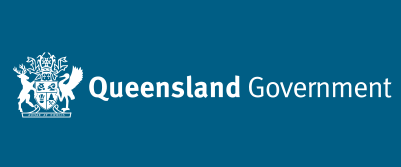How Effective Tax Planning Can Benefit Businesses
When running a business, tax time can feel overwhelming. Many owners focus on day-to-day operations, leaving tax considerations until the last minute. However, proactive tax planning in Mackay can offer significant advantages beyond simply lodging returns on time.
Tax planning isn’t about avoiding obligations—it’s about making informed decisions throughout the year to help businesses manage cash flow, meet compliance requirements, and support growth. In this blog, we’ll explore how effective tax planning can benefit businesses and why working with qualified tax accountants in Mackay can be an important part of your financial strategy.
What Is Tax Planning?
Tax planning involves reviewing your business’s financial activities and structuring transactions in ways that are legally sound and financially beneficial. It’s not just about preparing for tax season; it’s about shaping your business’s financial decisions year-round.
Some core areas of tax planning include:
- Choosing the right business structure (sole trader, partnership, company, trust).
- Timing income and expenses to manage taxable income.
- Taking advantage of allowable deductions and concessions.
- Planning for superannuation contributions.
- Considering capital gains tax (CGT) implications for asset sales.
- Understanding GST obligations and cash flow effects.
A well-considered tax plan helps reduce surprises and gives business owners more control over their finances.
Benefits of Proactive Tax Planning
Let’s explore why businesses might consider prioritising tax planning rather than leaving things until tax season rolls around.
Helps Manage Tax Liabilities
Strategic planning helps identify deductions, offsets, and concessions that may be relevant to your business. These can include:
- Immediate asset write-offs for eligible purchases.
- Deductions for prepaid expenses.
- Small business concessions that reduce taxable income.
Being proactive can help businesses reduce tax liabilities within legal boundaries, which may free up funds for reinvestment.
Improves Cash Flow
Tax is one of the biggest expenses for many businesses. Without planning, large tax bills can create cash flow strain. Tax planning can help:
- Spread tax obligations throughout the year.
- Avoid unexpected tax debts that disrupt cash flow.
- Make informed decisions about dividend payments, wages, and superannuation contributions.
Good cash flow management helps businesses stay resilient, particularly during economic fluctuations.
Supports Compliance with ATO Requirements
Australia’s tax laws can be complex, with rules changing regularly. A proactive approach to tax planning helps businesses:
- Keep accurate records to meet ATO expectations.
- Understand changes in legislation that might affect reporting.
- Lodge returns and pay taxes on time to avoid penalties.
Working with tax accountants in Mackay who stay up to date with current tax rules helps businesses maintain peace of mind.
Provides Insights for Future Growth
Tax planning is closely tied to business strategy. Understanding the tax implications of decisions such as expanding operations, hiring new staff, or investing in new equipment can support long-term planning.
Businesses can work with their accountants to:
- Assess how growth plans will impact tax obligations.
- Evaluate cash flow requirements for future projects.
- Understand tax implications of selling or restructuring the business.
A clear tax plan provides useful insights for steering a business toward sustainable growth.
Common Tax Planning Strategies for Businesses
Each business is different, so tax planning should be tailored to individual circumstances. However, here are a few strategies that businesses might consider discussing with their accountants:
Review Business Structure
The structure under which a business operates can have significant tax implications. Different entities have different tax rates, compliance requirements, and levels of asset protection. A periodic review helps confirm whether your current structure still suits your business’s size and goals.
Manage the Timing of Income & Expenses
Sometimes, it makes sense to bring forward expenses or delay income recognition to manage taxable income in a particular financial year. This strategy can be useful for:
- Matching income with higher deduction years.
- Managing tax thresholds.
- Planning around legislative changes.
However, timing decisions should always consider broader cash flow needs.
Use Small Business Concessions
Businesses classified as small businesses may access various tax concessions, including:
- Simplified depreciation rules.
- CGT concessions for business asset sales.
- Simplified trading stock rules.
These concessions can reduce tax obligations and simplify compliance tasks.
Plan Superannuation Contributions
Superannuation contributions are deductible up to certain caps. Planning contributions carefully can help businesses:
- Reduce taxable income.
- Provide benefits for owners and employees.
- Comply with superannuation guarantee requirements.
Prepare for Capital Gains Tax (CGT) Events
Selling a business asset can trigger CGT obligations. Tax planning helps businesses:
- Determine eligibility for CGT concessions.
- Time asset sales to align with lower-income years.
- Assess the impact on overall tax liabilities.
Understanding CGT implications early can avoid costly surprises later.
The Importance of Professional Guidance
Although some tax planning strategies seem straightforward, Australian tax law can be complex and subject to change. Mistakes or misunderstandings can result in penalties or unintended tax bills.
Working with a tax accountant on the Central Coast (or wherever your business is located) helps businesses:
- Stay compliant with tax laws.
- Identify strategies suited to their specific industry and size.
- Avoid common errors that could lead to ATO scrutiny.
- Focus on core operations while leaving technical tax matters to professionals.
A collaborative relationship with an accountant means you have a sounding board for important decisions that may impact your financial position.
Signs Your Business Might Benefit from Tax Planning
While every business should consider tax planning, it becomes particularly important if:
- Your business has experienced significant growth.
- You’re considering restructuring your operations.
- You’re planning to sell major assets or the business itself.
- Your income varies significantly from year to year.
- You’ve accumulated carry-forward losses and want to explore how to use them.
If any of these scenarios sound familiar, it might be time to have a conversation about tax planning.
Book a Consultation with Our Tax Accountants in Mackay
Tax planning is not just about preparing for year-end obligations. It’s an ongoing process that can support compliance, improve cash flow, and help businesses achieve financial goals. By understanding how tax impacts your business, you’re better equipped to make decisions with confidence.
At Whitson Dawson Accountants, we help businesses across Mackay navigate the complexities of tax planning with clarity and professionalism. We aim to help clients make well-informed decisions for the future.
Contact us today to learn how tax planning in Mackay can support your business’s financial health.















